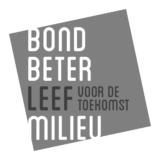Speeding up Europe’s industrial decarbonisation by moving beyond EU carbon market
A new report by environmental think tank CE Delft, commissioned by AirClim as part of the LIFE ETX project, assesses different policy options for the decarbonisation of European industry.

While significant progress has been made to reduce European emissions via the European Union’s Emissions Trading System (EU ETS), this has largely been attributable to the power sector. Energy-intensive industries, in contrast, have achieved little to no improvement in their carbon efficiency.

However, the EU’s ‘Fit for 55’ package requires the rapid decarbonisation of these sectors so as to bring their emissions in line with Europe’s climate goals. Fit for 55 aims to slash overall emissions in the EU by at least 55%. Alongside the proposed policies in this package, there are additional policy options, both at the national and EU level, that could play an essential role in strengthening industry’s path towards decarbonisation, the report concludes.
At the national level, several European countries have already introduced policies that provide additional incentives for decarbonisation. These policies take the form of price instruments, such as a carbon price floor in the Netherlands, and carbon taxes in several other countries (Denmark, Estonia, Finland, Iceland, Ireland, Norway, Slovenia, Sweden and Switzerland).
Faster routes
The policies also consist of strategies to eliminate highly polluting industrial production methods, such as the phase-out of coal-fired power plants in Germany. Lastly, public-private partnerships could provide another policy option, as illustrated by the example of the Swedish steel industry’s transition to hydrogen-based energy. The different policy options discussed each have varying results but highlight ways in which countries can take additional steps beyond the EU ETS to speed up decarbonisation.
The report also examines options at the EU level to strengthen existing decarbonisation policies, namely the EU ETS and the Industrial Emissions Directive (IED). It illustrates the many options for additional decarbonisation within these policies, such as lowering the supply of ETS allowances, and giving away fewer for free, as well as introducing greenhouse gases into IED permits.
Overall, the report concludes that there are many feasible and effective policy options to speed up the decarbonisation of European industry, both at the national and the EU level. As carbon-intensive industries are nowhere near the required reduction path in order for Europe to meet its climate goals, these additional policy options are essential complements to the current toolkit.










